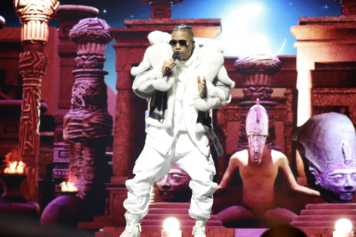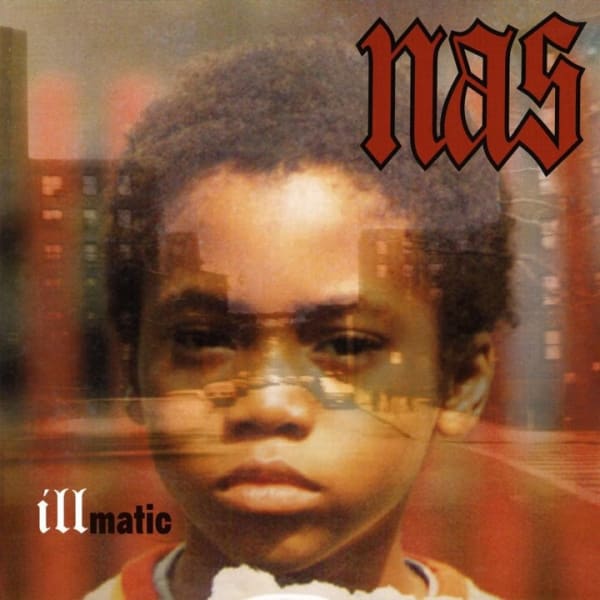(Opinion) The Grammy Awards went down last night and once again there are large swaths of people who are mad at the fact that White artists are dominating in musical categories that have been traditionally been performed and perfected by Black artists. One glance at the list of Grammy winners brings this to light. British soul singer Sam Smith won Record of the Year, Song of the Year, Best New Artist and Best Pop Vocal Album. Hip-hop veteran Eminem won Best Rap Album for The Marshall Mathers LP2. In addition, the racial angst of the Grammys took it to a Dark skin versus Light Skin dynamic as fans of both Ledisi and Beyonce locked horns on social media regarding the latters usurping of Ledisi’s rendition of Mahalia Jackson’s “Take My Hand, Precious Lord”, re-popularized by the Oscar nominated film Selma, along with John Legend and Common. When asked about the switch by” Entertainment Tonight,” the darling songstress took the high road.
What I will say and what Im excited about is that I had the pleasure of playing an iconic figure in Selma, and the song, Take My Hand, Precious Lord, its been going on forever starting with the queen Mahalia [Jackson], the queen of soul Aretha Franklin, Ledisi said.
Then, I was able to portray and sing my version of the song, and now we have Beyonc. Her generation will now know the song, so Im a part of history, she continued.
There are some who believe these things harken to a far off day in the future where all forms of Black music have been absorbed into the greater American music lexicon. But the eye rolling part about that one is that its already too late as far as Black music is concerned.
The system has been set up to absorb and market whatever musical genre happens to be dominant as soon as it is identified as a money-maker. For the most part, that dominant music genre has been created and propagated by people of African descent for the greater part of American history.
At times I try my very best to play to the intelligence of my constituency or readers. It is to that end that I oftentimes assume that people of African descent are aware of the musical legacy to which we all are heirs. But, alas, moments such as the post-show social media firestorm over the 57th Annual Grammy Awards occur and the question of the soul, and who stole it, are once again at the very top of the news stream.
Anyone with a sensitivity to such matters could sense exactly what the post-Grammy dialogue was going to be like. Remember when the great Jill Scott and fellow Philly native Eve took Iggy Azalea to task for her Blaccent”?
These things are always boiling underneath the surface. However, the music industry will always look for ways to make Black music mainstream, thus digestible to a greater swath of potential consumers. Is it ironic that in the aftermath of the Grammys came the trailer for the soon to be released “Straight Outta Compton” NWA biopic?
Probably not. But back to the Grammys.
The theme of the day was amalgamation. The duo of Nas and Madonna on the red carpet and the Sam Smith duet with Mary J. Blige were part of a seemingly orchestrated effort to show Black artists giving their favorite White performer a stamp of approval. It was all about recognizing White swag from the past and a symbolic passing of the baton to the current stable of Blue-eyed soul artists. To be certain, the Who Stole the Soul debate has been going on for at least 100 years. Yet with each generation comes a different rendition of the same old circumstance.
Jazz, Rock and Roll, Funk, Hip Hop, Blues, R&B, the usage of the electric guitar, scratching on turntables and thousands of other musical and cultural aspects of the African experience are now part of the mainstream culture. Yet at one time these elements were considered counter-cultural. This isnt a mistake and it isnt new. Jazz great Bennie Goodman, Philly Soul singers Hall & Oates, Lisa Stansfield, and the late great Teena Marie were each immensely talented.
Yet a great deal of their marketability for the mainstream populous was the fact that they were White. Though this may be considered sacrilege for someone like the late Lady T, a woman who was Caucasian in skin tone only, record execs have been repackaging soul music from the very beginning. Though White rappers and soul singers are not a guaranteed success story by any means, being born with the right packaging helps.
Artists like Eminem and Elvis Presley are timeless, Hall of Fame-worthy talents, but it is doubtful that they would have found such staggering mainstream acceptance had they been Black. By no means am I trying to make either of their talent illegitimate, but race and image are a fact of commerce and marketing in the world.
We look at the argument swirling around Iggy Azalea as one example out of thousands. While there are plenty of people of African descent who say she is a manufactured product of T.I., there are others (such as Raekwon of Wu Tang Clan) who believe she is talented and worthy of her standing in the game. Similar dialectics have been broached for 70’s singer Michael McDonald, the Rolling Stones, The Average White Band and thousands of other White performers who gained fame via their interpretation of soul music. For those who decry this tactic and rail against it, I humbly suggest to you that it is too late to be angry now.
Umbrage to a reality does not make it less real. It simply means that it will forever be a source of negative emotions.
The music industry has been set up that way for people of African descent since the New York Phonograph Company and the New Jersey Phonograph Company first vied for the talents of vaudeville singer George W. Johnson back in 1890.
His hit single was titled The Whistling Coon, a song in which Johnson compared himself to a baboon. It was common place for Black artists to use self-deprecating lyrics and for White artists to wear Blackface to emulate this kind of music in their Minstrel shows.
Has much really changed today?
Look closely, think deeply.
Hank Pennys Catch Em Young, Treat Em Rough, Tell Em Nothing was an example of an attempt at blue-eyed soul in 1951 and is an exact copy of Black R&B singer Mabel Scotts song of the same name.
It is interesting that so many people think that singers need the Black buying public and the Grammys to validate their talents. White soul singers and the music industry in general don’t owe Black people anything. The bottom line is that property ownership, not the performance of said property, is where the money is made.
The sad part about this cycle of musical blame is the fact that it is scratched up twice a year when the nominees for the American Music Awards and the Grammys are announced. Yet we all act so shocked when every White soul singer has several major Black artists co-signing for them, and we’re dumbfounded when we find out how many Black artists die a miserable, paupers death. The music industry is viewed as being literally and figuratively of the devil. Meanwhile, Black moguls and music execs who understand this dynamic and are able to take advantage of it are lambasted for being sellouts, while their White counterparts are celebrated for being pro-diversity and brave enough to blaze new cultural trails.
Last night we witnessed Pharrell dressed up like a bell-hop from a racist Disney movie to perform, for seemingly the cajillionth time, Happy and the world applauded.
But I aint mad at nobody.
Here’s a suggestion- how about artists who are so thirsty and desperate to be put on stop selling out for crumbs? But that’s probably too much to ask. Make an effort to own Black music, both business wise or through support of our favorite artists, or just shut up.
You can’t be mad at a snake for being a snake.



